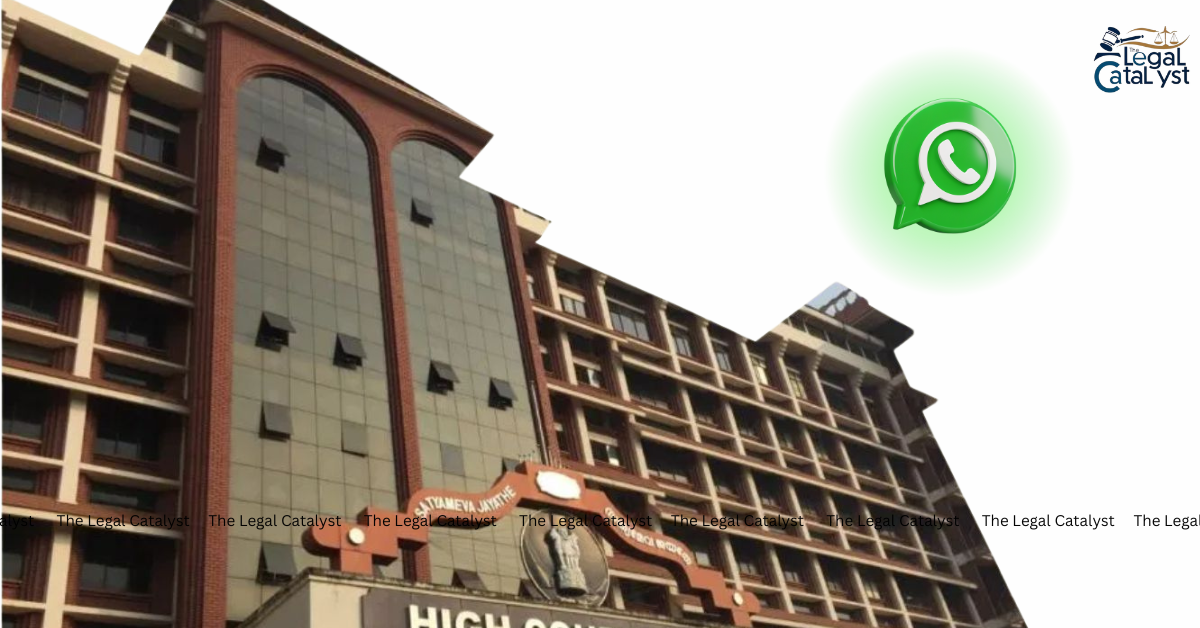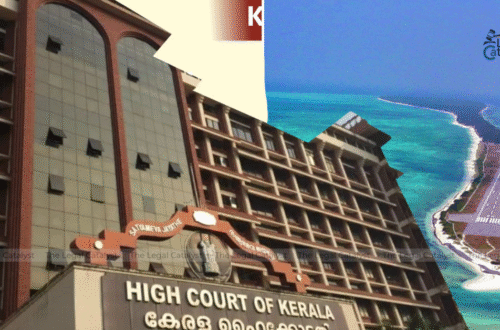In a significant ruling, the Kerala High Court set aside the confiscation of a transport vehicle under the Central Goods and Services Tax Act, 2017 (CGST Act) after finding that the statutory notice had been served improperly via WhatsApp, a mode of communication not recognised under the law.
[Mathai MV v. The Senior Enforcement Officer & Anr.]
A Division Bench comprising Chief Justice Nitin Jamdar and Justice Basant Balaji held that although digital communication such as WhatsApp was temporarily permitted during the COVID-19 pandemic, it no longer satisfies the procedural requirements of Section 169 of the CGST Act for valid service of notice.
The case began with an appeal filed by a truck owner. Their vehicle was detained on November 25, 2024, by Kerala state GST authorities. The vehicle was allegedly transporting sullage without valid documentation. A confiscation order was subsequently passed on December 21, 2024, under Section 130 of the CGST Act.
The appellant contended that he had no prior knowledge of any tax violation by the consignor. He asserted that he was merely providing transportation services. He further submitted that he did not receive any notice under Section 130. He was denied a chance to be heard, which is a statutory right.
The State, on the other hand, argued that the driver had been examined. They stated that notices were sent repeatedly to the vehicle owner via WhatsApp. It was further claimed that the proceedings had reached finality and could not be reopened.
Follow us on Instagram
Rejecting these arguments, the Kerala High Court held:
“The notice stated to have been sent to the Petitioner/owner through WhatsApp is not a mode of service contemplated under Section 169 of the Act of 2017. While such a practice was permitted during the COVID-19 pandemic, it no longer constitutes a valid mode of issuing notice under the provisions of the Act.”
The Court emphasised that Section 130 requires the authorities to provide an opportunity of hearing to the vehicle owner prior to confiscation, and that such opportunity must be preceded by proper service of notice in accordance with the statute.
Given the lack of adherence to this procedure, the Bench of Kerala HC ruled that the confiscation process was legally unsustainable. It accordingly quashed the confiscation order dated December 21, 2024. It also quashed the single-judge ruling dated April 11, 2025. This ruling had earlier upheld the confiscation.
The matter has been remanded to the competent authority. There are directions to issue a fresh notice under Section 169. The appellant will be provided with a hearing within three weeks of appearance.
Also Read
Supreme Court Takes Suo Motu Cognizance of ED Summons to Lawyers






